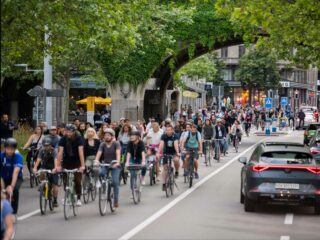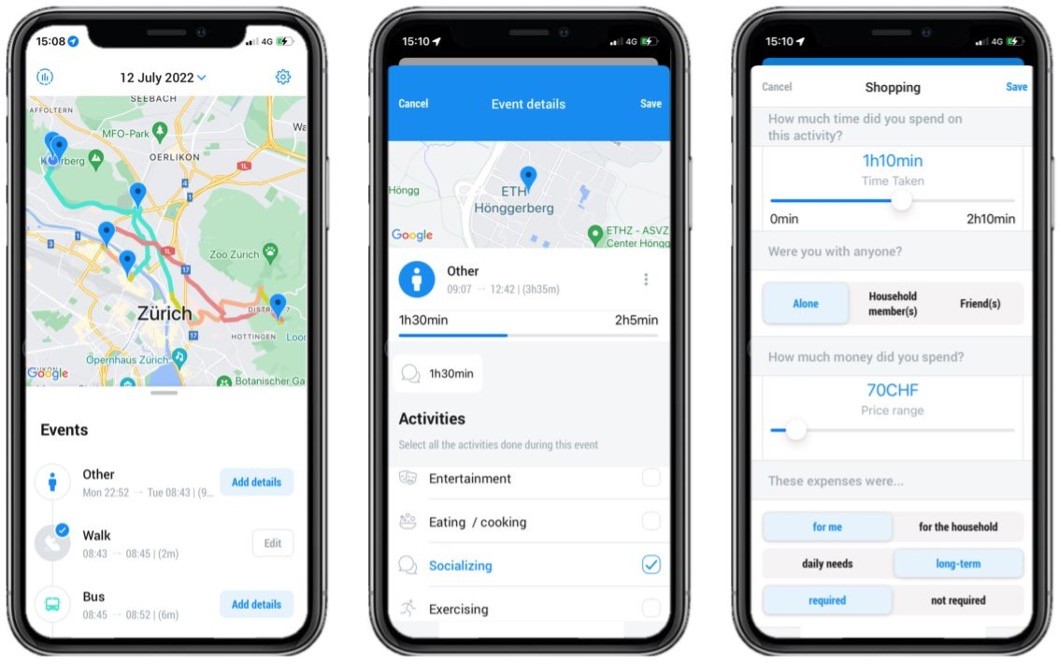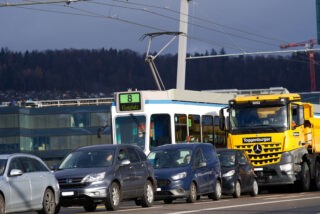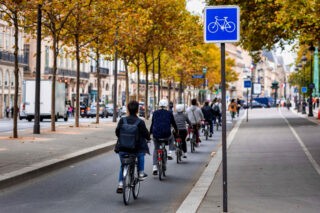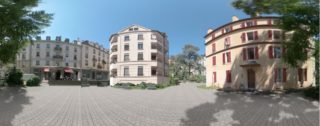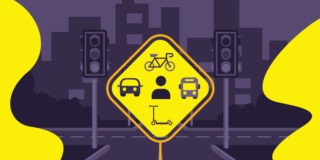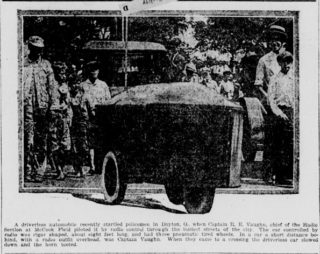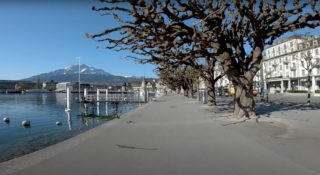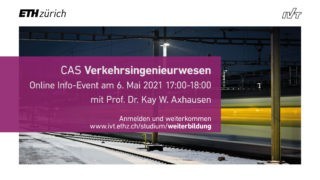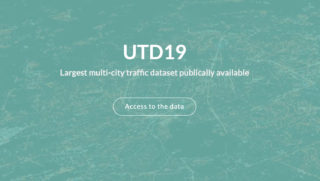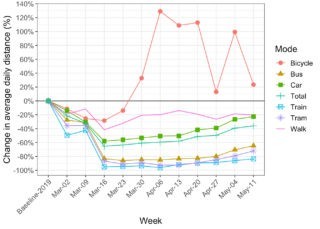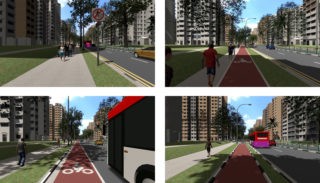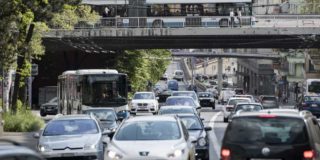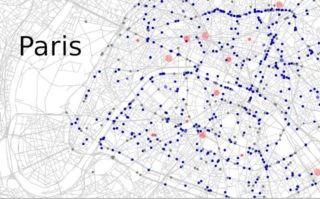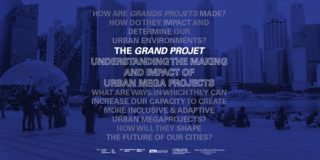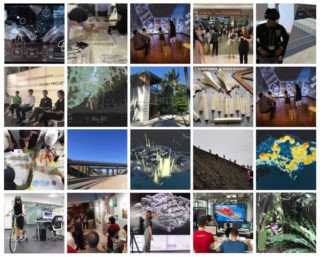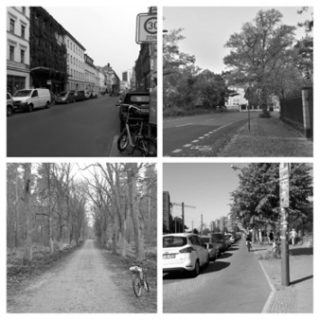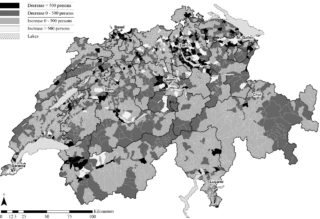Neue Ansätze in der Modellierung: «The German experiment with low flat rates for public transport. An economic and political evaluation»
New date will be announced asap | Seminar | ETH Zürich, Zentrum, ML F38.
Nachfragegetriebene ÖV-Systeme: «Lessons from the design of integrated on-demand transit systems in two cities»
20 March 2024, 14:00–15:15 | Seminar | ETH Zürich, Hönggerberg, HIL F36.1.
Neue Ansätze in der Modellierung: «Best of both worlds: data driven models with behavioural realism and flexibility»
DATE WILL CHANGE! (previously: 20 March 2024, 10:30 – 12:00) | Seminar | ETH Zürich, Hönggerberg, HIL F36.
CSFM Seminar: New Regulations on Autonomous Vehicles for Switzerland
11 January 2024, 15:00 | ETH Zürich.
E-Bike City: Nur noch die Hälfte der Strassen für die Autos
30. August, 2023, 18:30 – 19:45 | Podiumsdiskussion | Karl der Grosse, Saal, Kirchgasse 14, 8001 Zürich.
TimeUse+ – How do the Swiss Spend Their Time and Money? A Longitudinal Smartphone Diary Study with GPS
How we spend our 24-hour days varies over time, be it by changes in one’s personal life or external forces like modifications to the built environment or government-level restrictions, as was the case during the recent COVID-19 pandemic. TimeUse+ is a novel survey methodology to collect data on More
NSL Colloquium: Transport Planning – Where do we go now?
6. bis 8. December 2023 | ETH Zürich, Centre and Hönggerberg. Video Links of the 7th December NSL Colloquium Transport Planning – Where do we go now? (with: Milos Balac, ETH Zürich; Oded Cats, TU Delft; Alex Erath, FHNW Muttenz; Daniel Hörcher, Imperial College London; Allister Loder, TU More
Advances in Transportation & Mobility Planning
5 June, 08:00–12:30 and 6 June 2023, 09:45–12:00 | ETH Zürich, Hönggerberg, HIT E 51, Siemens Auditorium. Two-day seminar on design, new technologies, novel data sources, and equity for sustainable mobility systems.
E-Bike – Chancen und Risiken des Verkehrsmittels der Zukunft
Sendung ansehen: «Einstein» auf SRF 1, ausgestrahlt am 13.04.2023.
FCL Global Seminar: Vehicle-to-Grid for Car-sharing: Can Shared EVs Support the Power Grid in Future Cities?
29 March 2023, 5–6pm (SGT), 11-12 noon (CET) | Zoomlink, Meeting ID: 654 4098 1589. Register: HERE.
hEART 2023 – 11th Symposium of the European Association for Research in Transportation
6–8 September | ETH Zürich, Hönggerberg, HIT E 51, Wolfgang-Pauli-Strasse 27.
E-Bike City Kolloquium
8. Juni 2023, 9:00 – 18:30 | ETH Zürich, Zentrum, Audimax. An diesem Kolloquium werden die sieben Forschungsgruppen des D-BAUG Leuchtturmprojekts «E-Bike City» nicht nur ihre vorläufigen Ergebnisse präsentieren, sondern auch die Teilnehmenden aktiv in die Gestaltung der Forschungsfragen einbeziehen.
Difference in Urban Planning. Interdisciplinarity as an Approach to Understanding the Complexity of Contemporary Urban Societies
Cities attract people of diverse origins, religious practices, socioeconomic status, and everyday practices. As a result, urban planning is challenged to respond adequately to this demographic heterogeneity. These urbanization processes highlight the importance of placing difference at the centre of the urban planning agenda.
Will E-Bikes Bring Amsterdam and Copenhagen to Switzerland?
Kick-off event | 23 November 2022, 13:30, aperitif around 18:00 | HG F 30 (Audi Max), ETH Zürich, Zentrum. Registration deadline 9 November.
The E-Bike City: Bringing Amsterdam and Copenhagen to Switzerland?
Transport challenges in cities have never been more urgent. Mobility must be rapidly decarbonized and negative externalities of traffic are gaining more attention. On the other side, growing urban populations and economic growth generate ever more traffic.
Application of Machine Learning Classifiers in Train Route Scheduling
How much are common machine learning classifiers, such as Random Forest (RF), Support Vector Machines (SVM), and Artificial Neural Networks (ANN) better in forecasting than traditional discrete choice models? To which extent is it worth to sacrifice the improved interpretability of the latter to achieve a higher prediction More
ETH Zurich – Center for Sustainable Future Mobility
6 May 2022, registration deadline 15. April 2022, 08:00 | Kick-off Symposium | ETH Zürich, Centre, HG E3. The Center for Sustainable Future Mobility (CSFM) has been established at ETH Zurich in order to promote research on sustainable and future-proof traffic and transport systems.
Verkehrs-Pricing im Feldversuch
Verkehrsteilnehmende verändern ihr Verhalten, wenn sie für Kosten ihrer Mobilität aufkommen müssen, die bisher die Allgemeinheit bezahlt. Das zeigt das bisher grösste Pricing-Experiment im Schweizer Agglomerationsverkehr von Forschenden der Universität Basel, der ETH Zürich und der ZHAW. Artikel in den ETH News lesen
Urban Design and the Technological Shift in Transportation
In recent years technological innovations in transportation, such as automated vehicles (AVs), mobility-as-a-service, electric and connected vehicles, have been garnering attention. Some advocates liken the emergence of these technologies to a ‘revolution’ in transportation, while critics characterise this as a gross exaggeration. Despite the uncertainties in technological development, More
Neues Center für nachhaltige Mobilität der Zukunft lanciert
Zukunftsfähige Verkehrs- und Transportsysteme sind gefragt, die das Ziel unterstützen, die Treibhausgasemissionen bis 2050 auf Netto Null zu senken und erneuerbare Energiequellen zu nutzen. Die ETH-Schulleitung hat der Gründung des neuen «Center for Sustainable Future Mobility» (CSFM) als Kompetenzzentrum der ETH Zürich zugestimmt und eine Anschubfinanzierung für vier More
NSL Forum: Pandemie? Mitten im Klimawandel. Was bedeutet das für die räumliche Entwicklung der Schweiz? Ein Dialog.
Video jetzt online! In einem Dialog für Praxis und Hochschulen nahm das Netzwerk Stadt und Landschaft (NSL) der ETH Zürich am 11. November im Volkshaus Zürich eine Standortbestimmung für die räumliche Entwicklung in der Schweiz vor. Ausgangspunkt bildeten Erkenntnisse aus der Pandemiesituation, Hintergrund der Klimawandel. Die Tagung war More
Infoveranstaltung CAS Verkehrsingenieurwesen
Das Verkehrssystem verändert sich rasant. Neue Angebote setzen neue Massstäbe an Komfort. Neue technische Möglichkeiten stellen alte Praktiken in Frage, z.B. beim Fahrscheinverkauf oder bei der Lichtsignalsteuerung.
Urban Design and the Technological Shift in Transportation
18 November 2020 | Webinar | Time: 10:00–11:30. How can urban design steer the impacts of technological disruptions in the transport sector?
Are Our Cities Green Enough in Times of a Pandemic?
Green city areas are under pressure. Compact cities aim to reduce land consumption outside cities, but densification puts pressure on urban green areas. Will the existing green areas suffice for the increased demand during pandemics such as COVID-19? Using recent mobility data before and during the pandemic, we More
Largest Multi-city Traffic Dataset «UTD19» is now Publically Available!
Over the last four years, the Institute for Transportation Planning and Systems (IVT) at ETH Zurich and CITIES at NYU Abu Dhabi have gathered urban traffic data from over 40 cities worldwide, including London, Tokyo, and Zurich. In total, almost 5 billion vehicles covering a combined time span More
Mobilitätsverhalten vor/nach/während Covid-19
Der neueste Bericht des Mobilitätsverhaltens in der Schweiz, zum besseren Verständnis der Auswirkungen des Coronavirus, ist nun online. Beachten Sie vor allem die neuen Ergebnisse zu den PW-Geschwindigkeiten und der Wirkung des «home office» über die Wochen.
Mobility Behaviour in Switzerland: Coronavirus Study
To slow down the spread of the coronavirus, the population has been instructed to stay at home if possible. This measure consequently has a major impact on our daily mobility behaviour. But who is being affected, and how?
POSTPONED: 7th SCCER Mobility Annual Conference
23 November 2020 (tentative) | ETH Zurich. As 7 years of SCCER Mobility slowly draw to an end, we invite you to this conference to present a synthesis of the competence center, to review the most relevant research results of each capacity area and conclude with an outlook on More
Using Virtual Reality to Evaluate Cyclist’s Perceived Safety
Researchers at the Future Cities Laboratory are using virtual reality (VR) in cycling experiments to reveal users’ cycling behaviour and preferences in different environments. These insights can help planners understand and quantify the impact of infrastructure improvements in setting guidelines and prioritization of new infrastructure.
Wie das Strassennetz die Verkehrsleistung bestimmt
ETH-Forschende zeigen auf, dass sich die Verkehrskapazität von Städten anhand der Struktur ihres Strassennetzes vorhersagen lässt. Mit diesem Wissen können Stadtplanerinnen und Stadtplaner künftig quantitativ bestimmen, wie bauliche Eingriffe die Verkehrsleistung beeinflussen. Artikel in den ETH News
Eqasim: An Open-source and Extensible Platform for Building Agent-based Models
Agent-based models in transportation model individual travelers and their interaction in the transport system on a micro-level. A natural advantage of agent-based models are flexibility and the ability to model emergent behavior. Work at IVT has produced a new software package, eqasim, that drastically simplifies the design of More
The Grand Projet, Understanding the Making and Impact of Urban Megaprojects
25 September 2019, 18:00-19:00 | The Grand Projet Book Launch & Exhibition Opening | ETH Zürich, Hauptgebäude, im Lichthof, Erdgeschoss (HG E Nord), Rämistrasse 101, Zürich | exhibition open 25.9. to 4.10.2019. At this book launch and exhibition opening, The Grand Projet team at the ETH-Future Cities Laboratory presents the More
Future Cities: Actions
24-25 September 2019 | Zurich. The FCL conference ‘Future Cities: Actions’ will feature outcomes of research conducted at the Future Cities Laboratory since 2015, when the second phase of the programme began. In particular, the conference will focus on actions and FCL’s contribution to sustainable future cities.
«Das Future Cities Laboratory Global würde die ETH Zürich im Bereich der Stadt- und Raumplanung stärken»
Kay Axhausen ist nun für zwei Jahre neuer Leiter des Netzwerks Stadt und Landschaft. Er äussert sich hier zur Zusammenarbeit der Disziplinen Städtebau, Raum- und Landschaftsentwicklung und Verkehrsplanung sowie zur Neuordnung der Strassenfinanzierung in der Schweiz aufgrund automatischer Fahrzeuge.
nextRail19: Agile models for railway system planners and managers
12.-14. September 2019 | Internationale Bahn- und Mobilitätstagung | ETH Campus in Zürich. Diese Tagung wird erneut ein breites internationales Publikum von Wissenschaftlern, Entscheidungsträgerinnen, und Fachleuten aus den Bereichen Bahn und Mobilität anziehen. Die Tagung wird im bewährten Format weitergeführt: Symposium (Donnerstag), Seminare (Freitag), gefolgt von einem technischen Ausflug More
Energiewenden und Energienachfrage
14. Juni 2019, 13:15-14:15 Uhr | IVT-Seminar | ETH Zürich, Hönggerberg, HIL F 36.1
Ungleiche soziale Wirkungen der Infrastrukturen
26. Juni 2019, 11:00-12:00 Uhr | IVT-Seminar | ETH Zürich, Hönggerberg, HIL F 36.1
Erreichbarkeiten mit wenig Infrastrukturen
1. Juli 2019, 10:00-11:00 Uhr | IVT-Seminar | ETH Zürich, Hönggerberg, HIL F 36.1
Automatische Fahrzeuge und Parkierung
1. Juli 2019, 11:00-12:00 Uhr | IVT-Seminar | ETH Zürich, Hönggerberg, HIL F 36.1
Mobility Webinar Series, Spring 2019
11. April and 16. May 2019. SCCER Mobility Young Talent Development Program. Seminar series as a platform for young scientists to present their research projects related to Mobility. Further events from the SCCER are also forthcoming, including a Start-up and Entrepreneurship Workshop. Flyer
ETH Mobility Initiative
ETH Zurich has launched the ETH Mobility Initiative together with the Swiss Federal Railways (SBB) as first partner to further expand research and education in the area of mobility. The call for new partners and proposals is now open. Within this framework, a long-term research programme is being established More
The Scenic Route: The Effect of Urban Design on Cycling Route Choice in Berlin
As interest in cycling as a mode of transport rises concurrently with a rise in bicycle traffic volumes in Germany, modeling cyclists’ decisions gains importance. A recently completed online survey shows that in addition to commonly considered attributes like pavement type, the urban design characteristics «complexity» and «streetscape More
Soziale Netzwerke und Treffen in Tokio
Freitag, 1. März 2019, 11:00-12:00 Uhr | ETH Zürich, Hönggerberg, HIL F 36.1.
Homo economicus oder doch nicht?
11. Dezember 2018, 13:30-14:30 | Lecture by Prof. S. Hess, University of Leeds: Homo economicus vs the reptilian brain: bridging the gap between choice modelling, mathematical psychology and neuro-science.
Autonomous Vehicles as Reactivators for Peripheral Areas
Self-driving vehicles (AVs) will dissolve the boundaries between individual and public transport, changing the attractiveness of different areas as residential locations. The lack of public transport services in peripheral communities is currently leading to population decreases despite great (financial) efforts (e.g. Albinen VS). The aim of this study More
Mobility Pricing
Beginning in 2019, the Transport Planning group at IVT, in corporation with the University of Basel and the ZHAW will undertake a large-scale empirical study of mobility behaviour in Switzerland. Using a mobile app, participants will record their daily mobility and receive feedback and suggestions. The research is More


